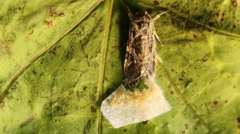James Harrison, revered for his historical contributions as a blood donor, passed away peacefully at 88, marking the end of a legacy that touched countless lives and families.
James Harrison, Iconic Blood Donor Who Saved 2.4 Million Babies, Passes Away at 88

James Harrison, Iconic Blood Donor Who Saved 2.4 Million Babies, Passes Away at 88
James Harrison, known for his extraordinary blood donations that saved millions of lives, has died in Australia.
In a significant loss to the medical community, James Harrison, known as the man with the golden arm, passed away in a New South Wales nursing home on February 17, 2023. At 88 years old, he leaves behind a remarkable legacy as one of the world's most prolific blood donors, credited with saving the lives of over 2.4 million babies through his unique blood plasma donations.
Harrison's blood was distinguished by the presence of a rare antibody, Anti-D, essential in treating pregnant women whose bodies might reject their unborn children. His journey as a blood donor began after he received multiple transfusions at the age of 14 due to a major chest operation, leading him to pledge his commitment to regular donations. He started at the age of 18 and continued until he was 81, donating plasma every two weeks.
His record for the most blood plasma donated was recognized globally, a title he held until 2022 when surpassed by a donor from the United States. The Australian Red Cross Blood Service, known as Lifeblood, expressed heartfelt condolences and highlighted Harrison’s contributions, which have profoundly impacted maternal and infant health.
Harrison's daughter, Tracey Mellowship, spoke proudly of her father’s achievements, remarking on his joy in knowing how many families had been positively affected by his selfless act of donating blood. She shared that he often reminded others that donating blood was painless and that the life saved could be their own.
The essential Anti-D immunization he helped provide protects unborn babies from the potentially deadly Haemolytic Disease of the Foetus and Newborn (HDFN). Prior to the development of Anti-D treatments in the mid-1960s, the prognosis for babies diagnosed with HDFN was dire, with a 50% mortality rate.
While there are fewer than 200 active Anti-D donors in Australia today, their contributions secure the health of around 45,000 mothers and babies each year. Lifeblood is currently collaborating with the Walter and Eliza Hall Institute of Medical Research to produce Anti-D antibodies through laboratory methods, an effort that could help scale the treatment globally.
As Lifeblood’s research director, David Irving, noted, developing a new therapy based on Harrison's innate ability to produce antibodies has long been desired by the medical field. The scarcity of regular donors capable of producing high-quality antibodies continues to be a major challenge. Harrison’s passing signals not just a loss of a remarkable individual but also a reminder of the ongoing need for dedicated blood donors in the fight against preventable diseases.






















